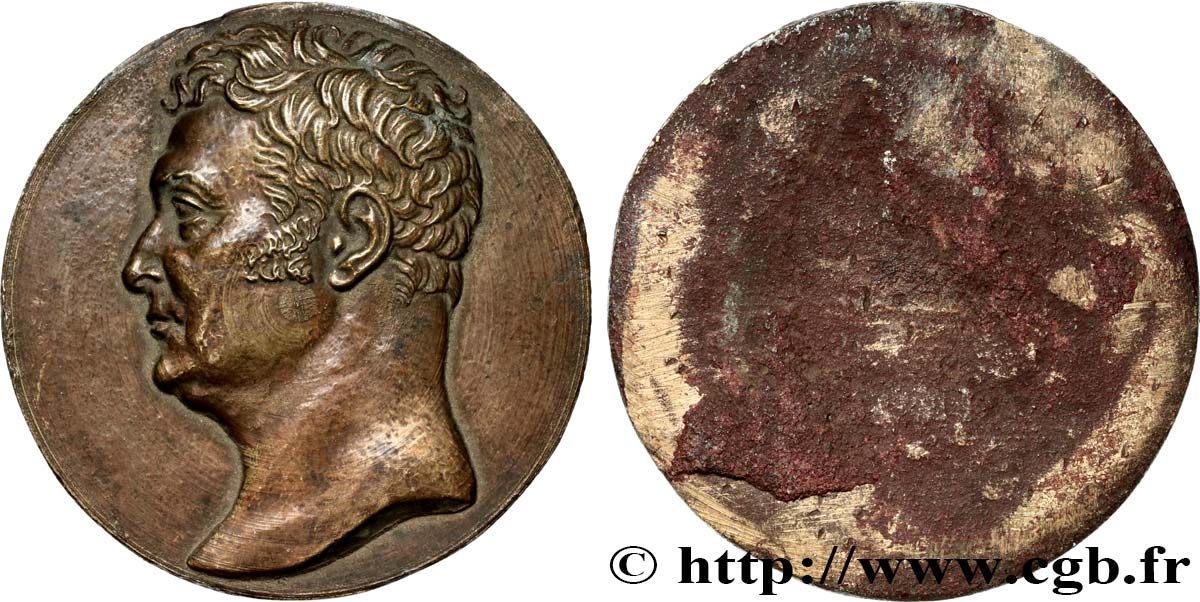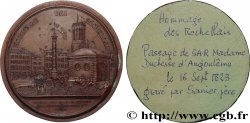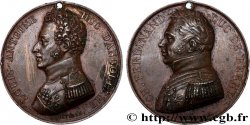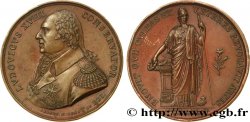fme_461624 - LOUIS XVIII Médaille, Victor Broussais - fonte uniface
180.00 €
Количество
Добавить в корзину

Тип Médaille, Victor Broussais - fonte uniface
Дата: n.d.
Монетный двор / Город: France
Металл: bronze
Диаметр: 64 mm
Ориентация осей монеты: 12 h.
Гравер MICHAUT Auguste-François (1786-1879)
Вес: 83,57 g.
Век: Lisse
Комментарии о состоянии
Objet très intéressant, avec une effigie en fort relief. Aspect homogène au droit, avec des traces de brossage circulaire. Revers plus hétérogène
Происхождение:
Cet exemplaire provient de la descendance directe du graveur Auguste-François Michaut (1786-1879)
Лицевая сторона
Аверс: легенда: ANÉPIGRAPHE.
Аверс: описание: Buste de Victor Broussais à gauche.
Обратная сторона
Реверс: Описание: Lisse.
Комментарий
Cette fonte uniface est un témoignage du travail du graveur. La médaille fme_457633 correspond au produit fini.
D’un diamètre de 64 mm cette effigie sera ensuite retravaillée puis réduite pour correspondre à la taille désirée pour la médaille (de 40 mm). Le traitement du coup et de la nuque présente es muscles de façon beaucoup plus marquée sur la médaille que sur cette fonte...
François Joseph Victor Broussais, né à Saint-Malo le 14 décembre 1772 et mort à Vitry-sur-Seine le 17 novembre 1838, est un médecin et chirurgien français de la Révolution et de l'Empire, connu un moment comme « l'empereur de la médecine » sous la Restauration. Il est l'auteur d'une nouvelle doctrine médicale, triomphale de son vivant, abandonnée après sa mort, le « système de Broussais »..
D’un diamètre de 64 mm cette effigie sera ensuite retravaillée puis réduite pour correspondre à la taille désirée pour la médaille (de 40 mm). Le traitement du coup et de la nuque présente es muscles de façon beaucoup plus marquée sur la médaille que sur cette fonte...
François Joseph Victor Broussais, né à Saint-Malo le 14 décembre 1772 et mort à Vitry-sur-Seine le 17 novembre 1838, est un médecin et chirurgien français de la Révolution et de l'Empire, connu un moment comme « l'empereur de la médecine » sous la Restauration. Il est l'auteur d'une nouvelle doctrine médicale, triomphale de son vivant, abandonnée après sa mort, le « système de Broussais »..








 Cообщить об ошибке
Cообщить об ошибке Распечатать страницу
Распечатать страницу Отправить мой выбор
Отправить мой выбор Задать вопрос
Задать вопрос Consign / sell
Consign / sell
 Информация
Информация









